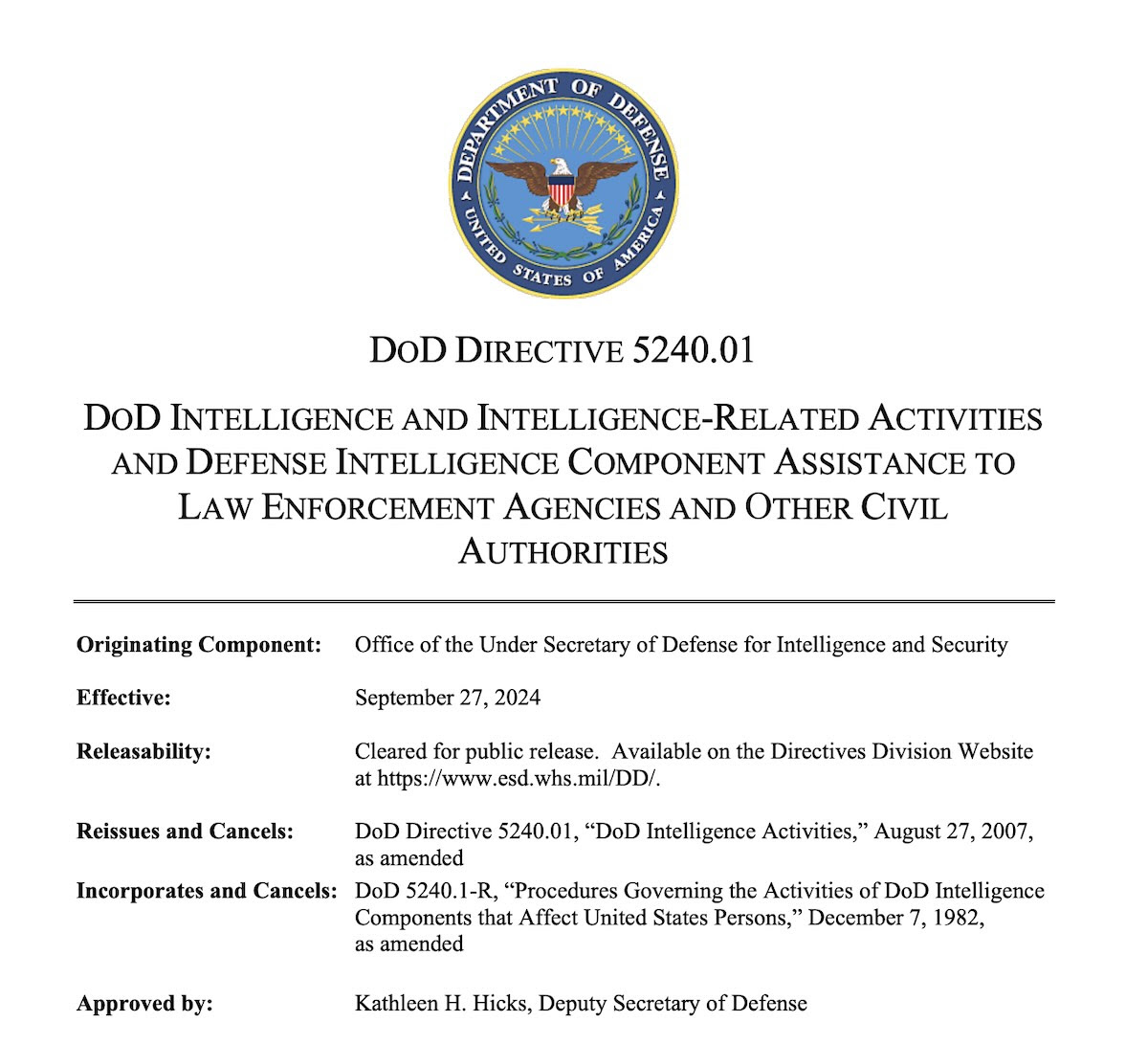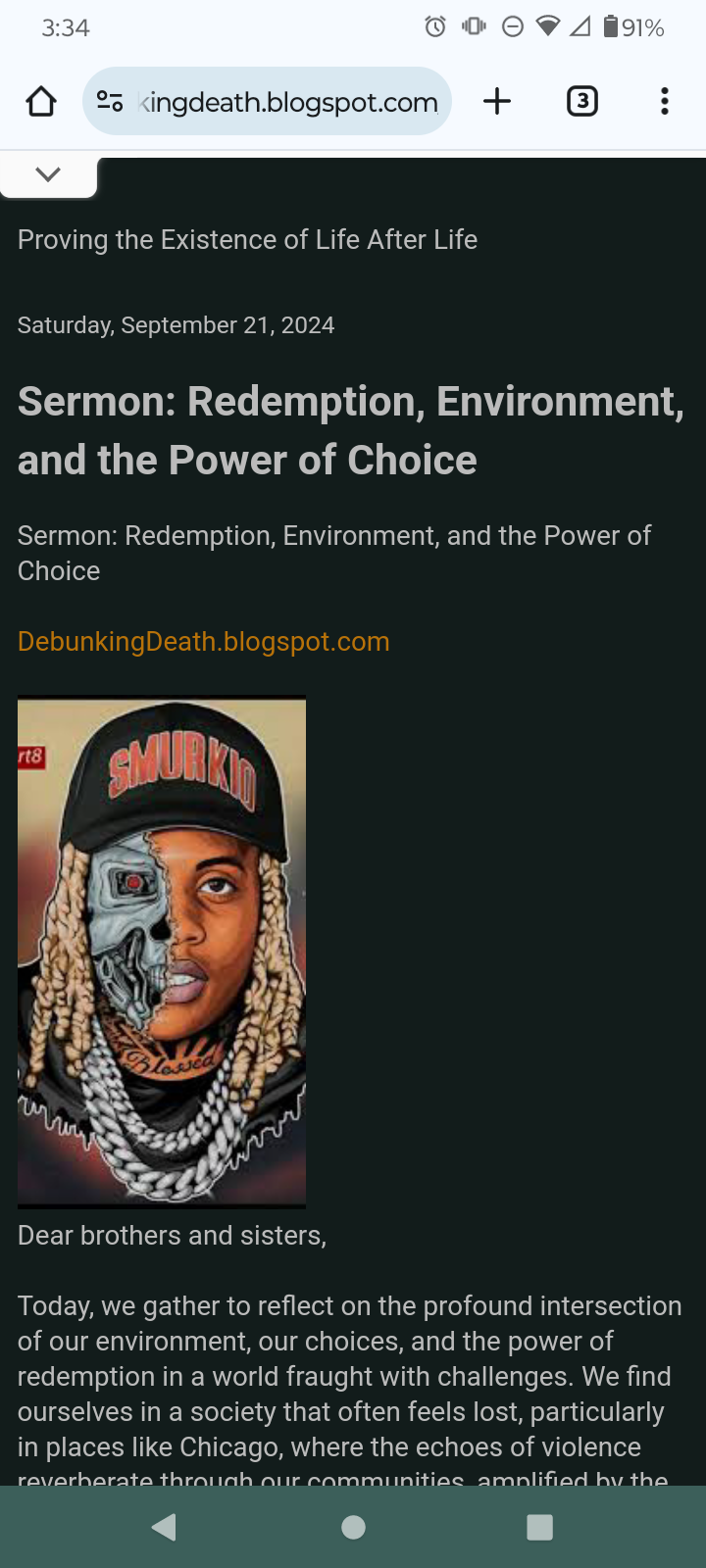Thursday, October 31, 2024
Trump to Pardon Lil Durk?
Wednesday, October 30, 2024
Caught On Tape
Caught On Tape
Dem Operative Caught In Undercover Video Explaining How They Allegedly Stole 2020 Election in GA
A stunning undercover video that was just released by Steven Crowder, reveals a Democrat operative who can be seen explaining to an undercover female how members of his party are stealing elections from Republicans
Gateway Pundit
Alien Jokes 👽👾
Top 10 Heart-Healthy Foods Backed by Science and Tradition
The Case for Dragons: An Exploration of Evidence and Theories
The Top 10 Miracles Attributed to Saints
Tuesday, October 29, 2024
Top 10 Real Werewolf Sightings!
Top 10 Potential UFO Sightings in the Bible
Sunday, October 27, 2024
American citizens can now be assassinated by the US government—‘LEGALLY’
Wednesday, October 16, 2024
American citizens can now be assassinated by the US government—‘LEGALLY’
American citizens can now be assassinated by the US government—‘LEGALLY’
BEWARE!
Assassinations of American citizens can now
be carried out ‘legally’ by the U.S. Military
SOTN Editor’s Note: The following exposé is as important as it gets regarding the rapidly evolving American Bolshevik Revolution being stealthily perpetrated by the communist-run Democrats, Deep State, U.S. Intelligence Community, U.S. Armed Forces, United Nations and the New World Order globalist cabal.
The concerned directive explained in the post further below was officially issued so that the treasonous measures that follow would have a far greater lethal effect against the American people:
While the NWO cabal is accomplishing several goals by flooding the USA with illegal aliens, there is one pivotal objective that reigns supreme.
By staging one border invasion of after another, the globalists are able to secret into the country millions of military-aged males under cover of being amnesty seekers, which they are not. Many are even purposefully released violent criminals seeking their next crime spree in America.
Once these trained mercenaries, experienced soldiers of fortunes and paid terrorists are over the border, they’re ferried to the various 50 states to train for their next missions.
There are essentially 3 duties/destinations for these fighting aged men.
(1) The trained terrorists will be transported to certain cities where they will join highly organized terrorists cells. There they will await their future orders.
(2) The paid mercenaries will be sent to extremely clandestine military training camps to be trained in urban and rural guerrilla warfare. Again, they will await their future orders.
(3) The willing and less dangerous economic immigrants and war refugees are immediately registered into a “Accelerated Military Path to US Citizenship” program. By volunteering to enter the U.S. Armed Forces, these future grunts are put on a fast-track to full-fledged citizenship with all kinds of perks. However, these mercs are also put into specially trained regiments and squads who are stripped of any reservation about firing on Americans. The communist-run DoD knows that the average US military service member would not kill their fellow citizens, so they run these foreign recruits through highly manipulative mind-control programs as preparation to man what are basically treasonous brigades.
Each of these three groupings of extreme enemies of the American Republic serve critical purposes in the staging of the long-planned American Bolshevik Revolution. The Khazarian decision-makers at the very top of this CIA-coordinated color revolution scheme will use basically the same war plan that was utilized during both the 1917 Bolshevik Revolution and subsequent Russian Civil War, if and when they launch this insurrection to save their necks.
KEY POINT: Before many of these dangerous mercs even set foot inside the USA, they undergo a preliminary orientation at staging areas such as Darin Gap, Panama. (See: UN RUN TERRORIST TRAINING CAMP FOR INVASION OF AMERICA)
— A Veteran Intelligence Analyst & Former U.S. Military Officer
(Source: BE AWARE! These are the two primary drivers of the long-planned American Bolshevik Revolution.)
KEY POINT: This extremely slippery slope, that now permits extrajudicial assassinations of U.S. citizens, began in earnest with this illicit and tyrannical move by Manchurian Candidate Barack Hussein Obama: “FALSE FLAGS OPERATIONS” are LEGAL PROPAGANDA PRODUCED by the Department of Defense.
State of the Nation
October 13, 2024
DoD Directive 5240.01: The Stealth Expansion of Military Intelligence Powers in Life-or-Death Domestic Scenarios
Written By: GMI Reporter

Screenshot
Imagine waking up to discover that the U.S. military has quietly been granted the authority to assist in domestic law enforcement activities—including the use of lethal force against U.S. citizens in certain circumstances. Now consider that this change was enacted just weeks before an election, already surrounded by concerns about unrest, civil liberties, and potential government overreach. This is the reality of DoD Directive 5240.01, reissued on September 27, 2024.
Quick Summary
New provisions: The updated directive expands the circumstances under which the DoD can assist law enforcement, including the use of lethal force.
Assassination explicitly forbidden: While assassination is banned, the new language allows for lethal actions under “imminent threats.”
Concerns about civil liberties: The expanded definition of “national security threats” is raising alarms, particularly given DHS’s broader definition of domestic terrorism threats.
High-level approval required: Any intelligence-sharing that could lead to lethal force must be approved by the Secretary of Defense, but Component Heads can act immediately for up to 72 hours before obtaining approval.
Introduction
As the U.S. prepares for one of the most controversial and closely watched elections in its history, a concerning update to DoD Directive 5240.01 has quietly been put into effect. Reissued on September 27, 2024, this directive governs the Department of Defense’s (DoD) intelligence activities and now includes provisions authorizing lethal force in certain circumstances when assisting civilian law enforcement. While the directive forbids assassination, it opens the door to lethal interventions under “national security” conditions, albeit with stringent restrictions on how such interventions are to be authorized.
This directive, reissued under the authority of the Secretary of Defense as per standard Department of Defense procedures, carries significant weight in shaping military operations and intelligence activities. While DoD Directives are typically internal policy documents, the implications of this particular update extend far beyond the walls of the Pentagon, potentially affecting civilian life and constitutional rights.
A Quiet Update With Loud Implications
The reissuance of DoD Directive 5240.01 repealed previous versions, including the 1982 DoD 5240.1-R. While the update might seem routine, the changes regarding the use of lethal force in domestic operations are significant.
In the 2016 version, the directive primarily focused on intelligence collection and ensuring civil liberties protections for U.S. persons. It emphasized strict oversight and the need for authorization before collecting U.S. person information.
However, the 2024 version expands the military’s role, particularly in assisting civil law enforcement, and authorizes lethal force under specific conditions, raising questions about its use during potential civil unrest surrounding the election.

Screenshot
Read the DoD Directive 5240.01 here.
The Differences Between the 2016 and 2024 Versions
1. Focus of the 2016 Version
The 2016 version of the directive did not mention the use of lethal force. Instead, it focused on:
Civil liberties protections: Ensuring strict oversight for operations involving U.S. citizens.
Intelligence collection restrictions: Limiting when and how U.S. person’s information (USPI) could be collected.
Privacy safeguards: Protecting privacy rights and preventing unauthorized data collection.
The 2016 directive centered around intelligence gathering, with no mention of lethal force.
2. New Provisions in the 2024 Version
The 2024 update introduces a dramatic shift, particularly regarding domestic operations. Section 3.3.a.(2)(c) now explicitly permits lethal force in cases of imminent threats or national security emergencies, provided the action complies with legal oversight, specifically DoDD 5210.56, which governs the use of deadly force by DoD personnel.
Key updates include:
Use of lethal force: The directive allows military intelligence components to assist law enforcement in operations that involve lethal force.
Conditions for force: The directive specifies lethal force can be used under conditions involving imminent threats.
Legal oversight: Any use of lethal force must comply with DoDD 5210.56, ensuring proper legal frameworks are followed.

Screenshot
Framing the 2024 Directive as a Restriction, Not an Expansion
Although the directive expands the DoD’s powers, some interpret it as more restrictive than it appears. Section 3.3 places tight limitations on when intelligence-sharing can occur and requires approval from the Secretary of Defense before any action involving lethal force is taken. The requirement for high-level approval may serve as a check on potential misuse of military force.
The 72-Hour Provision: A Time-Sensitive Response Mechanism
Paragraph 3.5 introduces a 72-hour provision, allowing Component Heads to provide immediate intelligence assistance in time-sensitive circumstances without prior approval from the Under Secretary of Defense for Intelligence and Security (USD I&S) or the Secretary of Defense (SECDEF).
Key points:
Immediate action: Component Heads can act in situations where time constraints prevent obtaining prior approval.
Relevance to lethal force: This applies in scenarios where lethal force might be necessary to prevent imminent harm.
72-hour limit: The authority is valid for up to 72 hours, after which formal approval is required.
Immediate reporting: Component Heads must report their actions to the USD I&S and SECDEF.
Approval required for continuation: Any further assistance must be formally approved beyond the initial 72 hours.
Why Timing Matters: Implications for the 2024 Elections
The timing of this update—just six weeks before the election—raises concerns. With debates surrounding election integrity, civil unrest, and political manipulation, the expanded powers granted by the directive could lead to military intervention in domestic affairs if civil unrest arises.
Adding to the concern is the Department of Homeland Security’s recent expansion of what constitutes domestic terrorism. The DHS has flagged individuals questioning COVID-19 origins, vaccine efficacy, or election integrity as potential threats. [Read our previous report on this topic here: The ‘Vaccine Hesitant’ & ‘Conspiracy Theorists’ a Domestic Terrorism Threat – New Homeland Security Report Implies].
This raises questions about how the DoD’s new authority to use, or assist civil law enforcement to use, lethal force might be applied in future domestic situations.
Civil Liberties Concerns
The expanded role of the military in domestic affairs, as allowed by the updated directive, raises several civil liberties concerns:
Right to protest: There are fears that expanded authority could suppress legitimate protests.
Privacy rights: Increased military involvement in domestic intelligence gathering could infringe on privacy.
Due process: The military’s role in law enforcement could bypass standard due process protections.
Freedom of speech: The broad definition of “national security threats” could target individuals for their political beliefs.
Civilian control: The expanded military role could erode civilian oversight of the military.
Constitutional Crossroads: Fundamental Rights at Stake
The recent reissuance of DoD Directive 5240.01 represents a significant legal shift that could potentially compromise core Constitutional protections that we hold dear. This directive opens the door to scenarios that may threaten these freedoms:
- Challenging the Posse Comitatus Act: This Act traditionally limits the powers of the federal government in using military personnel for domestic law enforcement. The new DoD directive, by permitting the use of lethal force through military assistance in civilian law enforcement, may push the boundaries of these limitations.
- Potential First Amendment Concerns: Natural health advocates and others exercising their First Amendment rights, such as questioning the government’s response to COVID-19 or the integrity of elections, have been labeled as potential domestic extremists and/or terrorists by some agencies. This directive could expand those classifications into scenarios involving lethal force interventions, potentially chilling free speech under the guise of national security.
- Fourth Amendment Considerations: This directive also allows intelligence sharing between military and law enforcement under emergency conditions, raising questions about the right to privacy and the potential for expanded surveillance.
- Due Process Implications (Fifth Amendment): The possibility of military use of lethal force in domestic scenarios introduces concerns about how due process protections might be maintained before potentially life-altering decisions are made.
These Constitutional considerations underscore the far-reaching implications of the directive and highlight the urgent need for public scrutiny and debate.
Conclusion: A Shift Toward Militarization of Domestic Affairs
The 2024 update to DoD Directive 5240.01 represents a significant shift in the military’s role in domestic law enforcement. While proponents argue that high-level approvals add oversight, critics see it as an expansion of military power in domestic affairs.
As the election approaches, maintaining a balance between national security and individual rights becomes ever more crucial. The implications of this directive may reshape the relationship between military power and civilian governance in the U.S. All the more reason why the conspicuous absence of reporting on the subject is further concerning, and why open, public debate on this change of DoD policy should be engaged as soon as possible. We hope this article contributes towards that goal.
Additional Sources:
- Department of Defense, “DoD Directive 5240.01: DoD Intelligence Activities,” August 27, 2007, amended October 15, 2020.
- Department of Homeland Security, “National Terrorism Advisory System Bulletin,” February 7, 2022.














